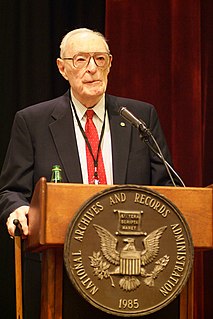A Quote by Wayne Dyer
Abraham Maslow taught me, that when you're working with a patient, never let them spend more than a few moments on the problem, because what you think about is what expands, and if they're talking about the problem all the time, when they leave your session, the problem will expand. Get 'em to put their attention on what they intend to create, or on solutions.
Related Quotes
Cities are never random. No matter how chaotic they might seem, everything about them grows out of a need to solve a problem. In fact, a city is nothing more than a solution to a problem, that in turn creates more problems that need more solutions, until towers rise, roads widen, bridges are built, and millions of people are caught up in a mad race to feed the problem-solving, problem-creating frenzy.
Let me take some pressure off. Your problem is not discipline. Your problem is not organization. Your problem is not that you have yet to stumble upon the perfect schedule. And your problem is not that the folks at home demand too much of your time. The problem is this: there’s not enough time to get everything done that you’re convinced—or others have convinced you—needs to get done.
I am not keen on the idea of an oversharer. I don't like that as a problem. I have more of a problem with an undershare. If I'm talking to somebody and I ask them how their love life is and they say "fine," that's a problem for me. I want to know things about people, I feel like we're all here on this planet, and intimacy is important.
Internal differences within the Nation of Islam forced me out of it. I did not leave of my own free will. But now that it has happened, I intend to make the most of it. Now that I have more independence of action, I intend to use a more flexible approach toward working with others to get a solution to this problem.
For the problem of decision-making in our complicated world is not how to get the problem simple enough so that we can all understand it; the problem is how to get our thinking about the problem as complex as humanly possible--and thus approach (we can never match) the complexity of the real world around us.




































